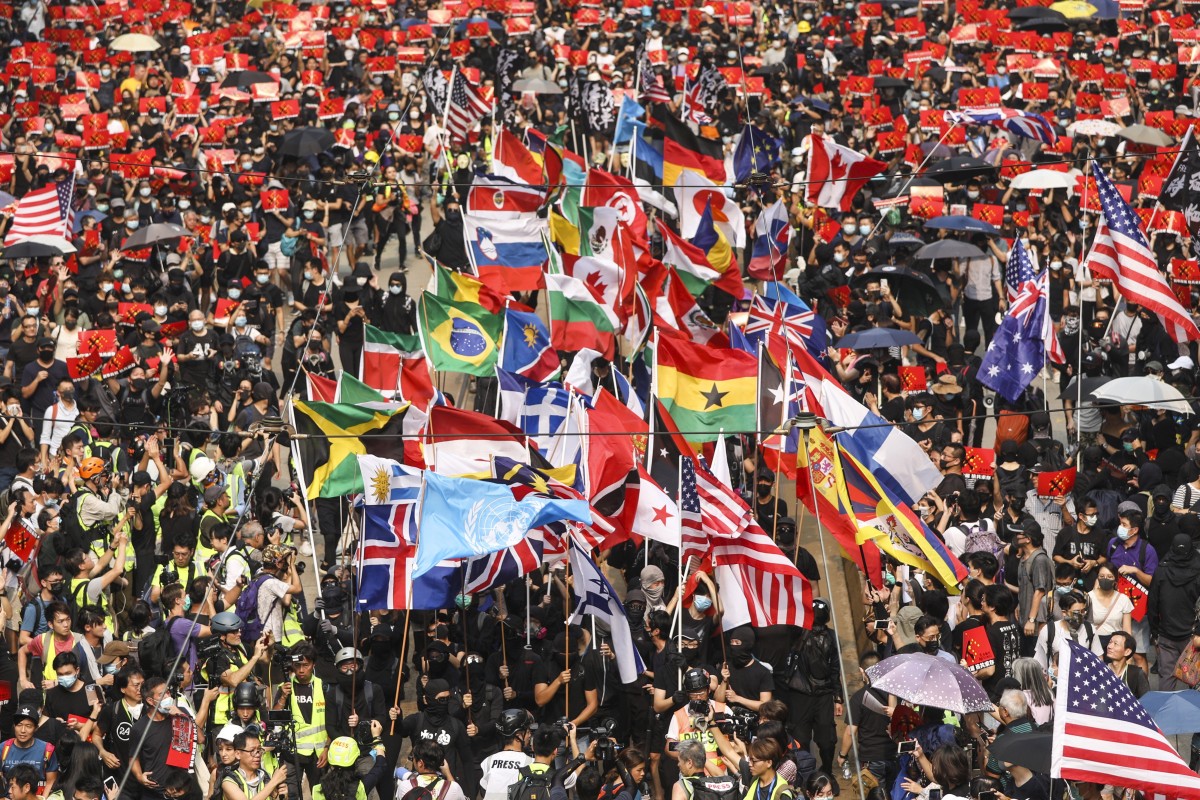Wee Kek Koon
 Since protests began in Hong Kong, in June, against the now-withdrawn extradition bill, Beijing has decried ‘foreign interference’. The central government in Beijing made up its mind very early on that the ongoing mess in Hong Kong is fuelled to a large extent by “ foreign interference”, something to which the Chinese are particularly sensitive, given the nation’s near-capitulation to foreign powers from the mid-19th to the mid-20th centuries.
Since protests began in Hong Kong, in June, against the now-withdrawn extradition bill, Beijing has decried ‘foreign interference’. The central government in Beijing made up its mind very early on that the ongoing mess in Hong Kong is fuelled to a large extent by “ foreign interference”, something to which the Chinese are particularly sensitive, given the nation’s near-capitulation to foreign powers from the mid-19th to the mid-20th centuries.
Informed by a toxic mix of resentment for past humiliations and pride in recent achievements, many mainland Chinese belligerently view the developed world as conspiring to deny their country its rightful place in the sun. However, in constructing the narrative of itself as a victim of foreign aggression and interference in modern times, China may do well to remember that it has, on multiple occasions, interfered in the internal affairs of other nations.
In 1400, the 176-year-old Tran dynasty of Dai Viet, a kingdom occupying the northern half of modern Vietnam, came to a violent end. Ho Quy Ly, a powerful Tran minister, dethroned the child emperor after executing hundreds of people who opposed him, including the emperor’s father, other royal relations and prominent officials. Ho renamed the kingdom Dai Ngu and declared himself emperor of the new Ho dynasty.
When the dust had settled, China had to be informed. Managing relations with its giant northern neighbour had always been a bane for the Vietnamese state, especially when China was strong. Although Dai Viet had been a de facto independent state, the Tran rulers paid fealty to the emperors of the Ming dynasty (1368–1644).
To ensure its security and cement its legitimacy, the newly minted state of Dai Ngu sent envoys to the Chinese court in 1403, where they convinced the Yongle Emperor that Ho’s takeover was legal and enjoyed popular support because they were “blood relations” of the enfeebled Tran royal clan.
The Ho family was condemned for unlawful usurpation and the court petitioned the Yongle Emperor to restore the Tran dynasty. The appeal to a foreign power to intervene in a messy political situation at home must surely be familiar to anyone with even a passing interest in what is happening in Hong Kong at the moment.
To complicate matters, the kingdom of Champa, which occupied the southern half of modern Vietnam, complained to the Ming court in 1404 about their northern neighbour invading their lands and killing their people.
In 1406, the Yongle Emperor decided to invade Dai Ngu, ostensibly to restore the fallen state of Dai Viet and the Tran dynasty. By the middle of the following year, the Chinese army had put an end to the short-lived state of Dai Ngu and captured Ho. But the Tran dynasty was not restored and the Ming forces remained; foreign intervention turned into foreign occupation.
Known by the Vietnamese as the fourth Chinese domination of Vietnam, the country was reduced to a province of the Ming dynasty from 1407 to 1427. The Vietnamese revolted against Chinese rule almost from the start, and the occupiers were eventually defeated and expelled by the Vietnamese hero Le Loi, who founded the Later Le dynasty of Dai Viet, in 1428.
There are many today who insist that China in the modern era has never interfered in the affairs of other nations, but it has certainly done so in the past, in various locations, whenever it had the wherewithal to do so.
No comments:
Post a Comment